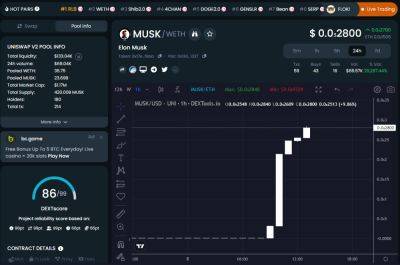From Thailand to South Africa, regulators tighten their grip on crypto: Law Decoded, July 3–10
Last week saw more rules and regulations emerge regarding digital assets. Thailand’s Securities and Exchange Commission issued new rules requiring digital asset service providers to warn customers of risks associated with cryptocurrency trading. The warning message must be clearly visible, and before customers can use the service, the business operator must arrange for the users to give consent and acknowledge the risks. Apart from a trading risks disclaimer, the new guidelines prohibit service providers from using customers’ funds for lending or investment.
The Monetary Authority of Singapore announced new requirements for crypto service providers to hold customer assets in a statutory trust by the end of 2023.“This will mitigate the risk of loss or misuse of customers’ assets, and facilitate the recovery of customers’ assets in the event of a DPT [digital payment token] service provider’s insolvency,” the authority says.
South Africa’s financial regulator, the Financial Sector Conduct Authority, has announced that all crypto exchanges in the country must obtain licenses by the end of 2023. If crypto exchanges continue to operate without a license after the deadline, the regulator intends to take “enforcement action,” which may involve fines or the closure of noncompliant firms.
In Belarus, the Ministry of Foreign Affairs is working on legal amendments prohibiting peer-to-peer (P2P) transactions in cryptocurrencies like Bitcoin (BTC). The ministry argued that crypto P2P services are “in demand among fraudsters who cash out and convert stolen funds and transfer money to organizers or participants in criminal schemes.”
The Australian Securities and Investments Commission conducted searches at Binance Australia locations. The
Read more on cointelegraph.com






















